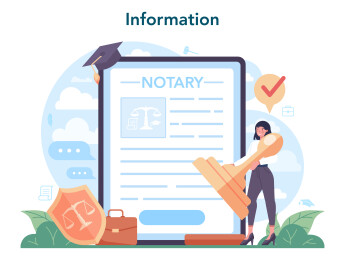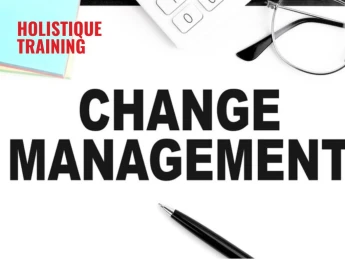- Table of Contents
- Introduction
- What Is Legal Writing?
- Legal Writing and Drafting Skills
- 1- Clarity and Precision
- 2- Logical Structure
- 3- Attention to Detail
- 4- Persuasive Writing
- 5- Analytical Thinking
- 6- Adaptability
- 7- Legal Research Skills
- 8- Collaboration and Communication
- Legal Writing Tips to Help You Get Started
- How to Write a Legal Resume that Law Firm Hiring Managers Will Notice
- 2- Showcase Legal Writing Experience
- 3- Highlight Research and Analytical Skills
- 4- Demonstrate Attention to Detail
- 5- Include Relevant Internships and Externships
- 6- Highlight Leadership and Extracurricular Activities
- 7- Quantify Your Achievements
- 8- Professional Development and Certifications
- The Role of Legal Writing in Policy and Procedure Write-Ups
- Ethical Considerations in Legal Writing
- Accuracy and Truthfulness
- Avoiding Deception and Misleading Statements
- Respecting Client Confidentiality
- Avoiding Plagiarism
- Respecting Opposing Parties and Counsel
- Avoiding Conflicts of Interest
- Maintaining Professionalism in Advocacy
- Conclusion
Introduction
Legal writing and drafting are indispensable skills for anyone pursuing a career in the legal profession. Effective communication through writing is crucial for lawyers, as they constantly deal with complex legal concepts and must present their arguments clearly, concisely, and persuasively. In this blog post, we will explore the fundamentals of legal writing, provide valuable tips to enhance your skills, and discuss the significance of a well-crafted legal resume in catching the attention of law firm hiring managers.
What Is Legal Writing?
Legal writing refers to the specialised form of writing legal professionals use to communicate their ideas, arguments, and analysis within the legal framework. It encompasses various documents such as legal memos, briefs, contracts, pleadings, and legal opinions. Legal writing is characterised by its precision, technicality, and adherence to specific legal conventions. Legal writing and legal drafting are often used interchangeably; however, according to Adoney Associates, legal writing encompasses persuasive documents like court briefs and legal letters, while legal drafting focuses on creating contracts and other written instruments. Both skills are vital in the legal profession, serving different purposes but equally significant in effective legal practice.
Legal Writing and Drafting Skills
Legal writing and drafting are sophisticated skills that require a combination of precision, logic, and creativity. Mastering these skills is crucial for any aspiring legal professional. Let's delve into the essential skills necessary for effective legal writing and drafting:
1- Clarity and Precision
In the legal world, clarity is king. Legal documents are often dense and filled with complex terminology. However, a skilled legal writer can distil these intricate concepts into clear, understandable language. Precision is equally vital. Ambiguity can lead to misinterpretation, and in legal matters, precision can be the difference between winning and losing a case. Using plain language without sacrificing accuracy is an art that every legal writer must master.
2- Logical Structure
Legal documents are essentially arguments structured in a way that is not only logical but also persuasive. A well-organised document follows a clear structure, seamlessly guiding the reader from the introduction to the conclusion. Starting with a concise introduction that outlines the purpose and scope of the document, followed by a systematic presentation of arguments or analysis, ensures that the reader can easily follow the flow of ideas. Effective use of headings, subheadings, and bullet points provides signposts, making it effortless for the reader to navigate through the document.
3- Attention to Detail
Legal writing requires an unparalleled focus on details. Lawyers deal with facts, citations, and references that must be accurate and up-to-date. Any mistake in these details can erode the credibility of the entire document. Careful proofreading and fact-checking are indispensable. Precision in legal writing is not just about being grammatically correct; it's about ensuring that every piece of information presented is impeccably accurate.
4- Persuasive Writing
One of the primary goals of legal writing is persuasion. Lawyers often write to convince a judge, jury, or opposing counsel about the validity of their arguments. Persuasive writing involves crafting a compelling narrative backed by solid legal reasoning. It's about not only stating the law but also interpreting it, favouring your client’s position. Using persuasive language and rhetoric while maintaining objectivity and avoiding fallacies is an art that skilled legal writers develop over time.
5- Analytical Thinking
Legal writing and drafting demand analytical thinking. Lawyers must critically evaluate legal issues, identify relevant precedents, and construct arguments based on sound reasoning. This skill goes hand in hand with research abilities. Legal professionals need to dissect complex legal problems, analyse them thoroughly, and present their findings coherently. Being able to anticipate counterarguments and address them preemptively strengthens the overall persuasiveness of the legal document.
6- Adaptability
Legal writing varies significantly based on the audience. Lawyers must be adaptable in their writing style. They may need to draft a complex legal brief for a judge, a clear and concise client advisory, or a negotiation proposal for opposing counsel. Adapting the tone, language, and level of technicality according to the audience is a mark of a versatile legal writer.
7- Legal Research Skills
A strong foundation in legal research is the backbone of effective legal writing and drafting. To support their arguments, legal professionals must locate and evaluate legal authorities, such as cases, statutes, regulations, and scholarly articles. Proficiency in using legal research databases and accurately citing these sources is crucial. Legal research skills enable lawyers to build persuasive and well-supported arguments.
8- Collaboration and Communication
Legal writing is rarely done in isolation. Lawyers often collaborate with colleagues, paralegals, and experts. Effective communication skills are essential to discuss legal strategies, clarify ideas, and incorporate feedback. Legal writers must be open to constructive criticism and be able to collaborate seamlessly within a legal team to produce cohesive and persuasive documents.
By honing these essential skills, legal professionals can elevate their writing and drafting abilities, enabling them to excel in the complex and competitive world of law. These skills empower lawyers in their day-to-day practice and contribute significantly to the legal outcomes they seek to achieve for their clients.
Legal Writing Tips to Help You Get Started
Mastering legal writing is an ongoing process that involves practice, dedication, and a keen eye for detail. Here are some actionable tips to help you hone your legal writing skills and create compelling and persuasive documents:

- Know Your Audience: Understanding your audience is fundamental in legal writing. Tailoring your language, tone, and level of technicality to match the knowledge and expectations of your readers is crucial. When writing for a judge, use formal and respectful language. For clients, use plain language to ensure they comprehend complex legal concepts. Adapting your communication style based on your document's recipient enhances your message's effectiveness.
- Use Plain Language: While legal writing may involve complex concepts, it's important to express them in plain and accessible language. Avoid excessive legalese and aim for clarity. Use examples and analogies to simplify intricate ideas without sacrificing accuracy. One good way to try and do this, as liveabout dotcom describes it, is by reading your sentences aloud to a colleague or replacing abstract words with more tangible and straightforward terms.
- Research and Citation: Thorough research is the foundation of every compelling legal document. Use reputable legal research databases and libraries to support your arguments and find relevant cases, statutes, regulations, and scholarly articles. Proper citation is equally important. Familiarise yourself with the citation style required for your document, whether it's Bluebook, APA, or another accepted format. Consistent and accurate citations enhance the credibility of your work and demonstrate your attention to detail.
Citation Style | Description | Example |
Bluebook | Legal citation style for law documents | Smith v. Jones, 123 U.S. 456 (2018) |
APA | American Psychological Association format | (Smith, 2018, p. 123) |
MLA | Modern Language Association citation style | (Smith 123) |
Chicago | Chicago Manual of Style citation format | Smith v. Jones, 123 U.S. 456 |
Harvard | Author-date referencing style | (Smith 2018, p. 123) |
Table 1: Common citation styles in legal writing
- Edit and Revise: Effective legal writing results from meticulous editing and revision. After completing your initial draft, set it aside for a while to gain a fresh perspective. When you return to it, focus on clarity, coherence, grammar, punctuation, and overall structure. Look for any inconsistencies in your arguments or evidence. Pay attention to the flow of your document and ensure each paragraph logically connects to the next. Seeking feedback from colleagues or mentors can provide valuable insights and help you identify blind spots in your writing.
- Use Persuasive Language: Persuasion is at the core of legal writing. Craft your arguments using persuasive language and logical reasoning. Provide well-researched evidence and support your claims with relevant legal authorities. While being persuasive, maintain objectivity and avoid hyperbole. Present your case in a manner that convinces the reader of its merit without resorting to exaggeration or emotional appeal. A well-structured, fact-based argument is far more persuasive than mere rhetoric.
- Be Concise and Direct: Legal documents should convey information efficiently. Avoid unnecessary verbosity and get straight to the point. Long-winded sentences can confuse the reader and dilute the impact of your arguments. Use clear and concise language to express your ideas. Each sentence should have a purpose, contributing to the document's overall message. Eliminate redundant phrases and ensure that every word serves a specific function in advancing your argument.
- Stay Updated: The legal landscape is constantly evolving. Stay abreast of recent judgments, legislative changes, and emerging legal theories. Being well-informed lets you incorporate the latest developments into your arguments, making your documents more relevant and persuasive. Regularly reading legal journals, attending seminars, and engaging with legal communities online are excellent ways to stay updated and enhance your understanding of current legal issues.
- Practise Active Reading: Active reading is a valuable skill for legal writers. When studying legal texts, critically analyse the structure, argumentation, and language experienced legal writers use. Take note of effective techniques and strategies employed in persuasive legal documents. Analyse how legal concepts are explained and how evidence is presented. By actively engaging with well-written legal materials, you can internalise effective writing techniques and apply them to your own work.
By incorporating these tips into your legal writing practice, you can refine your skills and create documents that are not only technically accurate but also persuasive and compelling. Remember that legal writing is both an art and a science, requiring a balance of technical proficiency and creative expression. With dedication and continuous effort, you can become a proficient legal writer capable of crafting compelling arguments and communicating complex legal ideas with clarity and impact.
How to Write a Legal Resume that Law Firm Hiring Managers Will Notice
A well-crafted legal resume is your ticket to securing coveted positions in law firms or legal departments. Your resume is your first impression, showcasing your skills, experiences, and qualifications. Here’s how you can tailor your legal resume to stand out among the competition:
1- Tailor Your Resume to the Job
Customisation is key when it comes to your legal resume. Each job application is unique, and your resume should reflect the specific requirements of the position you’re applying for. Study the job description carefully and identify the skills and qualifications the employer is seeking. Tailor your resume to highlight your relevant experiences, skills, and accomplishments that align with the job requirements. A targeted resume demonstrates your genuine interest and makes you a strong contender.
2- Showcase Legal Writing Experience
Legal writing is a fundamental skill sought after by law firms. Dedicate a section of your resume to highlight your legal writing experience. Include details about research papers, articles, briefs, or any other legal documents you have written during law school, internships, or previous positions. Mention any specific topics or cases you’ve worked on, emphasising your ability to communicate complex legal concepts effectively. If you’ve published legal articles or blog posts, provide the titles and publication details to showcase your expertise in legal writing.
3- Highlight Research and Analytical Skills
Legal professionals are expected to possess strong research and analytical thinking skills. In your resume, emphasise your ability to conduct in-depth legal research, identify relevant sources, and analyse complex legal issues. Describe any research projects you’ve undertaken, highlighting the methodologies you used and the outcomes achieved. Showcase your proficiency in critically evaluating legal problems and presenting well-reasoned solutions. Demonstrate your analytical thinking by mentioning any specific cases or legal challenges you’ve worked on and the strategies you employed to address them.
4- Demonstrate Attention to Detail
Attention to detail is a hallmark of a successful legal professional. Law firms place significant importance on accuracy, especially in legal documents. Highlight your experience in proofreading and editing legal documents, ensuring accuracy and consistency. Mention your ability to catch errors and ensure that all documents are error-free. Providing specific examples, such as catching factual inaccuracies or formatting issues in legal briefs, demonstrates your meticulous approach to your work.
5- Include Relevant Internships and Externships
Internships and externships provide valuable hands-on experience in the legal field. Include details about your internships and externships, emphasising the tasks and responsibilities that are relevant to the job you’re applying for. Describe any legal writing projects you completed, research tasks you undertook, or cases you assisted with. Highlight any positive feedback or recognition you received during these experiences, showcasing your contributions and dedication to the legal profession.
6- Highlight Leadership and Extracurricular Activities
Leadership skills and involvement in extracurricular activities can set you apart from other candidates. If you’ve held leadership positions in legal associations, student organisations, or community service initiatives, include them in your resume. Describe your roles and accomplishments, emphasising any legal writing or research projects you led. Participation in moot court, debate teams, or mock trial competitions also demonstrates your advocacy and communication skills, which are highly valued in the legal profession.
7- Quantify Your Achievements
Whenever possible, quantify your achievements to provide tangible evidence of your capabilities. For instance, mention the number of legal articles you’ve written, the impact of a research project you contributed to, or the percentage of accuracy you maintained while proofreading legal documents. Quantifying your achievements adds credibility to your resume and provides concrete examples of your skills and accomplishments.
8- Professional Development and Certifications
Continuous learning and professional development are essential in the legal field. Mention any certifications, workshops, or training programmes you’ve completed related to legal writing, research, or other relevant skills. Demonstrating your commitment to continuous learning showcases your initiative and willingness to stay updated with the latest developments in the legal profession.
By carefully tailoring your legal resume to highlight your legal writing skills, research expertise, attention to detail, and leadership abilities, you present yourself as a well-rounded and capable legal professional. Remember to keep your resume concise, focusing on the most relevant and impactful experiences. A well-crafted resume opens doors to exciting opportunities and positions you as a valuable asset in the competitive legal job market.
The Role of Legal Writing in Policy and Procedure Write-Ups
Legal writing plays a pivotal role in creating and implementing policies and procedures within organisations and government bodies. Policies and procedures are the backbone of any institution, providing guidelines for employees, ensuring compliance with laws and regulations, and safeguarding the organisation's interests. Here's how legal writing influences the formulation and effectiveness of policy and procedure write-ups:
- Clarity in Communication: Policies and procedures must be communicated clearly and unambiguously to employees and stakeholders. Legal writing techniques, such as using plain language and precise terminology, are essential in ensuring that individuals from various backgrounds easily understand the content of policy documents. Ambiguity or confusion in policies can lead to misinterpretation and non-compliance, making clarity a fundamental aspect of policy write-ups.
- Legal Compliance: Legal writers must know relevant laws, regulations, and industry standards. Legal professionals ensure that every aspect aligns with the legal framework governing the organisation's operations when drafting policies and procedures. They analyse complex legal language and translate it into understandable terms, ensuring that policies are legally compliant and accessible to non-legal professionals within the organisation.
- Risk Mitigation: Legal writing anticipates potential risks and liabilities, addressing them preemptively in policy and procedure documents. Legal professionals can craft policies that mitigate risks and protect the organisation from legal disputes by identifying legal loopholes and vulnerabilities. Thorough legal analysis and precise wording are critical in safeguarding the organisation's interests and preventing legal challenges in the future.
- Adaptability to Change: Legal writers must draft policies and procedures that are adaptable to changing legal landscapes. Laws and regulations evolve over time, requiring organisations to adjust their policies accordingly. Legal professionals anticipate these changes and draft policies flexibly, allowing for modifications without compromising the policy's integrity. Crafting policies that can withstand legal scrutiny even in the face of evolving laws demonstrates the skill and foresight of legal writers.
- Standardisation and Consistency: Legal writing ensures standardisation and consistency in policy and procedure write-ups. Using consistent terminology, definitions, and formatting throughout policy documents is crucial for clarity and comprehension. Legal professionals create a standardised language that aligns with legal standards, facilitating a cohesive approach to policy implementation within the organisation. Standardisation enhances understanding and simplifies enforcement and evaluation of policy adherence.
- Ethical and Fair Practices: Legal writing in policy and procedure documents ensures the incorporation of ethical and fair practices. Legal professionals analyse the ethical implications of policies, guaranteeing that they promote fairness, inclusivity, and equal treatment of all stakeholders. Ethical considerations are embedded in the language of policies, reflecting the organisation's commitment to integrity and social responsibility. Legal writers create policies that adhere to legal standards and uphold the highest ethical principles, fostering a positive organisational culture.
In summary, legal writing in policy and procedure write-ups is a multidimensional process that requires expertise in law, clear communication, risk analysis, adaptability, standardisation, and ethical considerations. Legal professionals play a crucial role in shaping organisational policies that are not only legally sound but also comprehensible, fair, and adaptable to change. Their ability to translate complex legal concepts into accessible language ensures that policies and procedures serve as effective guidelines, promoting legal compliance, mitigating risks, and upholding ethical standards within organisations and government entities.
Ethical Considerations in Legal Writing
Ethics are the cornerstone of the legal profession, and they extend deeply into the realm of legal writing. Legal professionals are bound by a set of ethical guidelines that govern their behaviour, ensuring honesty, integrity, and fairness in all interactions. Ethical considerations in legal writing are paramount and influence every aspect of the drafting process:
Accuracy and Truthfulness
The obligation to be truthful and accurate is at the core of legal ethics. Legal writers must represent facts, legal authorities, and evidence honestly and without distortion. Misrepresenting facts or citing cases inaccurately can lead to severe consequences, damaging the credibility of the legal professional and the legal system as a whole. Ethical, legal writers meticulously verify every piece of information presented in their documents to maintain the highest standard of accuracy.
Avoiding Deception and Misleading Statements
Ethical legal writing strictly prohibits any form of deception or misleading statements. Legal professionals must avoid crafting arguments that manipulate facts, omit crucial information, or present a skewed version of the truth. The integrity of the legal system relies on transparent and honest communication. Legal writers must present a complete and unbiased picture, allowing the reader to make informed decisions based on the truth, not on manipulation.
Respecting Client Confidentiality
Legal writers often work closely with clients, handling sensitive and confidential information. Upholding client confidentiality is a fundamental ethical duty. Legal professionals must exercise extreme care when discussing cases, ensuring no client-specific information is disclosed without proper authorisation. Violating client confidentiality breaches ethical obligations and can lead to legal repercussions.
Ethical Principle | Description | Importance in Legal Writing |
Accuracy and Truthfulness | Presenting facts and evidence truthfully | Ensures credibility and maintains trust |
Respect for Confidentiality | Safeguarding client information | Upholds client trust and legal obligations |
Avoiding Plagiarism | Citing sources and giving credit properly | Uphollds intellectual property Rights |
Professionalism in Advocacy | Maintaining respect and courtesy | Fosters a positive legal environment |
Avoiding Conflicts of Interest | Disclosing Potential biases and conflicts | Ensures impartiality and unbiased representation |
Table 2: Ethical principles and their importance in legal writing
Avoiding Plagiarism
Plagiarism, the act of using someone else's work or ideas without proper acknowledgement, is a serious ethical violation. Legal writers must cite their sources accurately, crediting the original authors and thinkers. Failing to do so not only undermines the credibility of the legal document but also constitutes a breach of intellectual property rights. Proper citation is a matter of academic integrity and a professional obligation in legal writing.
Respecting Opposing Parties and Counsel
Ethical legal writing demands respect for opposing parties and their counsel. Legal documents do not include derogatory language, personal attacks, or disrespectful tone. Legal professionals must maintain professionalism and courtesy even when vehemently disagreeing with the opposing side. By fostering a respectful environment, legal writers uphold the dignity of the legal profession and contribute to a constructive dialogue within the legal community.
Avoiding Conflicts of Interest
Conflicts of interest can arise in various forms, such as representing clients with conflicting interests or having personal biases that might influence legal writing. Ethical legal writers must recognise these conflicts and address them appropriately. Full disclosure of any potential conflicts of interest is essential to maintain transparency and integrity. Legal professionals should recuse themselves from cases where conflicts of interest could compromise the impartiality of their work.
Maintaining Professionalism in Advocacy
Legal writing often involves persuasive arguments to advocate for a client's position. While the goal is to persuade, legal professionals must do so with professionalism and respect for the legal process. Advocacy should be based on sound legal reasoning, relevant precedents, and compelling evidence rather than on inflammatory language or emotional manipulation. Ethical, legal writing aims to persuade through the strength of the argument and the case's merit, maintaining the dignity of the legal profession.
In short, ethical considerations are the guiding principles that shape the conduct and content of legal writing. Upholding honesty, integrity, and respect for all parties involved not only fulfils ethical obligations but also enhances the credibility and trustworthiness of legal professionals. Ethical legal writing ensures that the legal system operates with integrity, fairness, and justice, upholding the principles upon which the legal profession is built. Legal writers who adhere to these ethical standards significantly preserve the legal system's integrity and the public's confidence in the rule of law.
Conclusion
Strong legal writing and drafting skills are essential for success in the legal profession. You can effectively present your arguments and analysis by mastering the art of clear communication, logical organisation, and persuasive writing. Furthermore, crafting a well-tailored legal resume highlighting your writing skills and relevant experiences will make you stand out to law firm hiring managers. As you continue to refine your legal writing abilities, remember that practice–whether through training programmes or individual learning– attention to detail, and a commitment to continuous improvement are key to becoming a proficient legal writer.
























